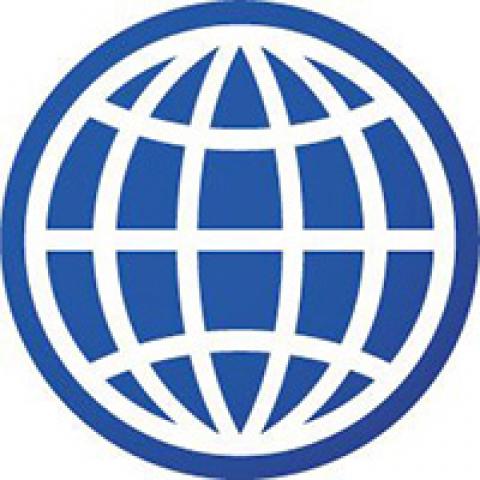Epitaph on the JCPOA
With US Special Envoy for Iran Robert Malley on unpaid leave pending a security clearance investigation, a chapter has closed in the Biden administration’s approach to Iran.
US President Joe Biden appointed Malley on Jan. 28, 2021, to right the wrong of his predecessor, Donald Trump, who withdrew from the Joint Comprehensive Plan of Action (JCPOA), or Iran nuclear deal, in 2018.
Instead of simply reentering the JCPOA, which was an option, Biden tasked Malley to seek a "longer and stronger" deal, deemed necessary given Iran’s advances in enrichment since 2018, and some rapidly approaching sunset clauses in the original agreement (more on this below).
Malley and team couldn’t close the deal before the departure of Iranian President Hassan Rouhani, who had considered the JCPOA a signature and historic achievement. But the US withdrawal empowered hard-line critics of Rouhani wary of negotiations with the West. Conservatives gained control of the Iranian parliament, and eventually the presidency, when Ebrahim Raisi took office in August 2021.
The United States and Iran got close on a new JCPOA, mostly negotiating indirectly via EU and regional mediators, but Iran couldn’t get to yes.
US policy toward Iran has shifted in recent months, coinciding with Malley’s case. This new chapter revolves around a US-Iran "understanding" on something short of an "agreement," to avoid congressional review, and would reportedly include increased monitoring of Iran’s nuclear program and restrictions on enrichment, as well as enhanced cooperation with the International Atomic Energy Agency (IAEA), in return for some sanctions relief and the release of US citizens detained in Iran. The rough framework of the latest US approach to Iran complements Biden’s deterrence/diplomacy policies and other regional diplomatic activity, such as the Iranian-Saudi rapprochement.
Malley’s case has spurred partisan congressional calls not just for further information on why his clearance was suspended, but to highlight what Republicans consider Biden’s misguided approach toward Iran. On Friday, the House passed a Republican-drafted defense appropriations bill that includes no funding for an Iran nuclear agreement, unless such an agreement is submitted to the Senate for approval.
Pending showdown on Ukraine, missiles
The JCPOA, however, lives on, almost zombie-like, at the Security Council, but probably not for long.
"Transition day," per the JCPOA, will occur on Oct. 18, 2023. On that date the United Nations is slated to lift restrictions on Iran’s research, development and production of ballistic missiles, and its import and export of missile- and drone-related technology. Iran, meanwhile, is supposed to submit to its parliament for ratification the "additional protocol," which allows the IAEA more intrusive inspection and monitoring of its nuclear programs.
Neither is going to happen, or at least not as envisaged. The European Union has already informed Iran that it will keep missile-related sanctions in place, according to Reuters. And Supreme Leader Ayatollah Ali Khamenei himself has directed that Iranian cooperation with the IAEA go no further than the safeguards agreements required for all Non-Proliferation Treaty (NPT) signatories — not the more expanded safeguards agreement.
That should just about do it for the Iran nuclear deal, which was otherwise slated to sunset in 2025.
A question is whether the US and its Western allies may confront Iran this October for providing drone technology to Russia in the war in Ukraine, which Iran denies.
The Wall Street Journal reported this week that Iran has expanded its domestic production of weaponized drones while evading international sanctions.
There are already signs that a showdown over Ukraine may be in the works. A UN Security Council discussion of the JCPOA last week got off to an acrimonious start over Russian and Iranian objections to the Ukrainian representative’s participation in the discussion. Ukraine is neither a member of the Security Council nor a party to the plan of action on the JCPOA.
The NATO Vilnius Summit Communique also called out Iran to cease its military support to Russia in Ukraine, including its provision of unmanned aerial vehicles.
Iran-Russia ties have gotten stronger since the war began, and Tehran seems to have some leverage because of Moscow’s pariah status over Ukraine.
Stephen Rademaker has suggested that the United States could raise the stakes by encouraging JCPOA signatories UK, France or Germany to enact snapback sanctions, a provision of the agreement that would reinstate all sanctions on Iran, not just the missile sanctions.
The EU has so far ruled out snapback, unless Iran increases its enriched uranium production to 90%, which is considered weapons grade.
An uneasy new normal
The Biden administration and the West no doubt will seek to dissuade Iran’s support for Russia in the war in Ukraine, but so far it seems unlikely to upend the current diplomatic track to prevent Iran from passing the nuclear weapons threshold, which is holding, despite the collapse of the JCPOA.
The US Office of the Director of National Intelligence recently assessed that “Iran is not currently undertaking the key nuclear weapons-development activities that would be necessary to produce a testable nuclear device.”
By pursuing a "less for less" understanding that could also lead to the release of the four US citizens held in Iran, Washington is tacitly accepting the normalization of Iran’s status as a permanent threshold nuclear weapons state, as an NPT signatory, like Japan, Brazil or South Africa. Interestingly, the NATO Summit Communique section expressing the alliance’s "clear determination" to prevent Iran from developing a nuclear weapon, only referred to Iran’s obligations to the NPT and implementation of the safeguards agreement — no mention of the JCPOA or the additional protocol.
The Biden administration also wants to keep on track an ongoing, if scratchy, regional detente between Iran and its neighbors, as well as prevent escalation in Iraq, Syria and Lebanon, where Iran still holds sway.
More on Iran from Al-Monitor:
- Our Correspondent in Tehran: Iran rebukes Italy over 'terror sponsorship' after hosting MEK leader
- Our Correspondent in Tehran: Iran in quest for foothold in Africa as Raisi sets out for landmark visits
- Jared Szuba: US Joint Chiefs nominee emphasizes Middle East cooperation to deter Iran
- Jared Szuba: US, Israel war games underscore warnings to Iran on nuclear enrichment
- Our Correspondent in Tehran: What does Rob Malley’s suspension mean for Iran?









